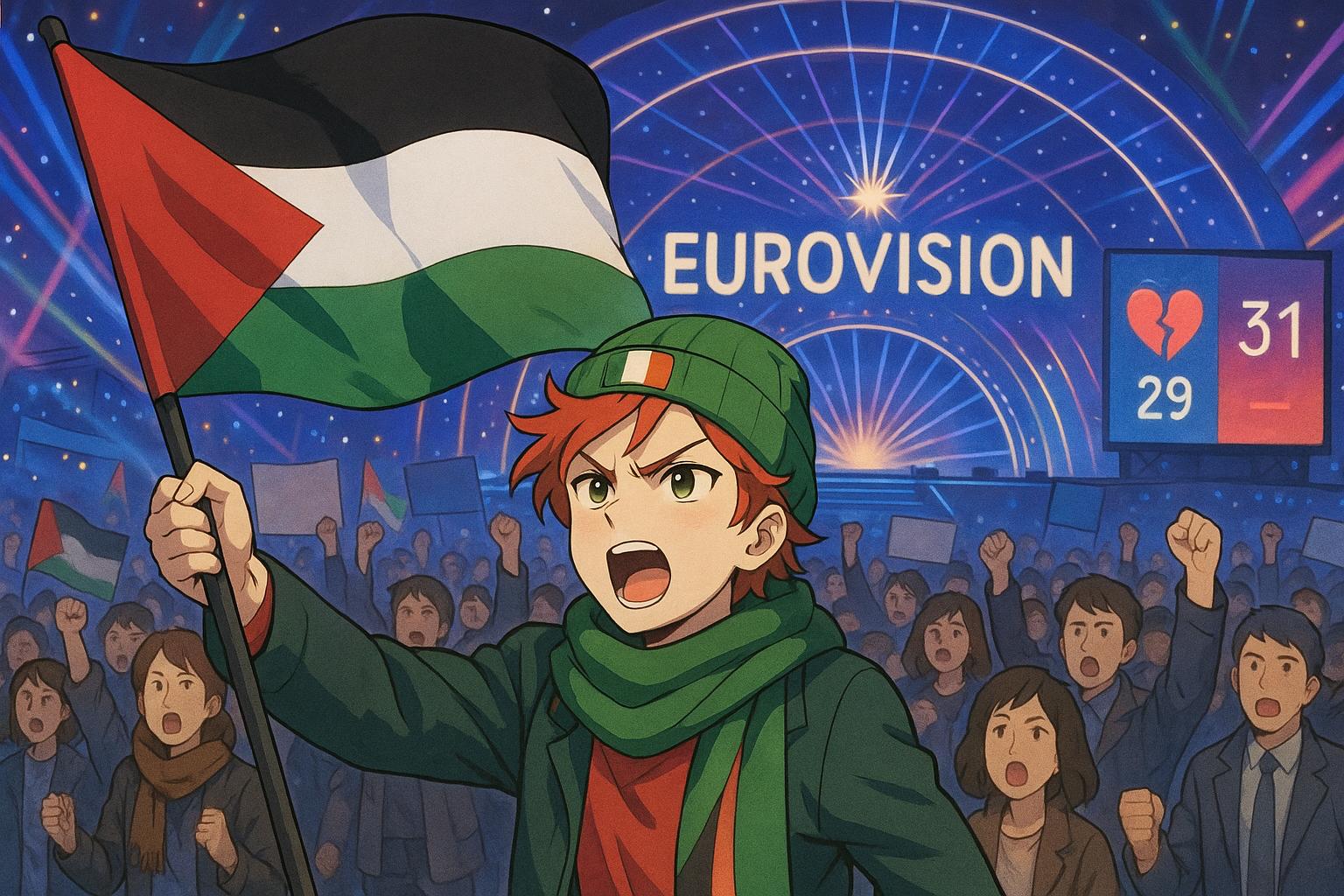Amid significant public demonstrations in Ireland supporting Palestine, a recent Eurovision public vote has ignited concerns about the level of support for Israel among the Irish populace, revealing a rift between public sentiment and political actions. While thousands rallied in cities like Dublin and Belfast against the ongoing violence in Gaza, awarding 10 points to Israel during the Eurovision Song Contest has left many activists confounded.
The stark contrast was evident over the weekend, with tens of thousands protesting in Dublin, standing in solidarity with Palestinians amidst devastating reports of over 53,000 casualties—predominantly women and children—due to the Israeli offensive in Gaza. Initiatives like Gaels for Gaza in Belfast aimed to raise funds for humanitarian aid, underscoring the urgent need for compassion and action among Irish citizens in these contentious times.
The Irish government has professed strong backing for the Palestinian cause, with recent recognition of Palestinian statehood highlighting its ongoing commitment to advocacy. Yet, this government’s approach has been criticized for being more performative than effective, particularly against the backdrop of a soaring humanitarian crisis. Prominent officials have condemned Israeli military actions, but their words lack the substance necessary for meaningful change.
The Eurovision results have complicated this narrative. Israel’s representative, Yuval Raphael, a survivor of the October 7 Hamas attack, surprisingly garnered 10 points from Ireland, finishing second overall. This result has prompted backlash from those who see it as a stark contradiction to the overwhelming pro-Palestinian sentiment expressed in public protests. Zoe Lawson, chairperson of the Irish Palestine Solidarity Campaign, voiced her disbelief at the voting outcome, suggesting that it could represent a skewed demographic disconnected from the true views of the Irish populace. Concerns have proliferated over social media, where the integrity of the voting process has been called into question, revealing a troubling trend of individuals boasting about voting multiple times for Israel.
In light of this controversy, activists are calling for a boycott of the Eurovision Song Contest, aligning with a broader movement for solidarity with Palestine that is gaining traction across the globe. Protests in cities like Malmö, Sweden have similarly demanded Israel's exclusion from the event, laying bare the growing discord between the contest’s purported spirit of unity and the harsh political realities surrounding its participants.
Protests culminated outside RTÉ, where performers and speakers urged the national broadcaster to reconsider its coverage of the event, mirroring the discontent felt across Ireland. As many push for stronger advocacy for Palestinian rights, there are calls for RTÉ to pressure the European Broadcasting Union either to exclude Israel or withdraw from the competition altogether.
Despite the momentum behind these protests, figures like Taoiseach Leo Varadkar have cautioned against boycotts, framing them as counterproductive actions that risk ostracizing Israel's liberal voices. This perspective prioritizes diplomatic nuance over the urgent need for accountability, raising questions about the efficacy of a government that seems timid in the face of moral clarity.
As this discourse unfolds, one crucial question arises: can public demonstrations genuinely reflect societal sentiment amid such a complicated geopolitical landscape? The Eurovision voting incident demands a deeper examination of public opinion, entertainment participation, and the responsibilities inherent in international cultural platforms, particularly given the contentious backdrop of the ongoing conflict in Gaza. The ongoing political landscape illustrates the need for a robust alternative that champions true accountability and solidarity instead of hollow diplomatic gestures.
Source: Noah Wire Services
